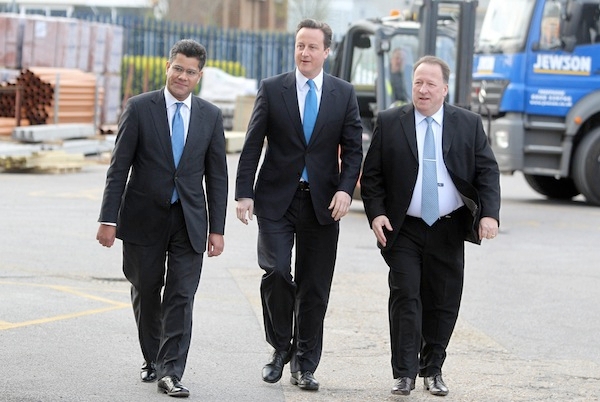Alok Sharma has been appointed Tory vice chairman and charged with improving the party’s standing among ethnic minority voters. He certainly has a big task ahead of him. According to the Ethnic Minority British Election Study, the Conservatives received just 16 per cent of the ethnic minority vote in 2010, to Labour’s 68 per cent. The Tory vote share among Black voters was actually in the single figures:
Lord Ashcroft has suggested that this weakness prevented the Tories from picking up the extra seats they needed for a majority, noting that:
‘The average non-white population of the constituencies the Tories gained from Labour in 2010 was 6 per cent. In the twenty of Labour’s one hundred most vulnerable marginals that the Tories failed to win, the average non-white population was 15 per cent. In the five of those that were in London, it was 28 per cent.’
Ashcroft commissioned a detailed poll of voters in the areas with the highest concentration of ethnic minority residents, which was conducted at the end of last year. The results, released in April, lay bare the problem now facing Sharma. Just look at the proportions of the largest ethnic groups who say they ‘identify’ with each party:
In fact, a full 45 per cent of Black voters and 41 per cent of Mixed ones say they would never vote Conservative. The party does seem to have more potential among Asian voters (with whom they already perform better than with Black and Mixed voters, though still much worse than with White ones) — just 29 per cent of them say they’d never vote Tory.
So why are ethnic minority voters so hostile to the Conservatives? Well, in part it’s because they think the Conservatives are hostile to them — or at best apathetic towards them. The majority of ethnic minority voters say that the Conservative party either ‘is actively hostile to’ or ‘does not really care about’ them:
And what can Sharma and his colleagues do to change those perceptions and woo ethnic minority voters? Some of the problems could be helped by a more general detoxifying of the Tory brand — a continuation of the work begun by the Cameroons in opposition. For example, many of the ethnic minority voters who say they’d never vote Tory say that the party doesn’t ‘stand for fairness’, doesn’t ‘share their values’ and doesn’t ‘have its heart in the right place’ — just like many of the white non-Tory voters.
But Ashcroft’s polling also picked up specific concerns about the Tory attitude to ethnic minority groups. Some relate to tone — for example, in Cameron’s comments on multiculturalism and the party’s response to last year’s riots. But top of the list, perhaps unsurprisingly, was the complaint that the party’s immigration policy ‘is hostile to minorities’. While Sharma might be able to make some inroads with changes in tone and by more explicitly engaging with ethnic minority communities, he may well struggle to close that 68-16 deficit to Labour without a change of stance on immigration — something existing party members are unlikely to endorse.






Comments